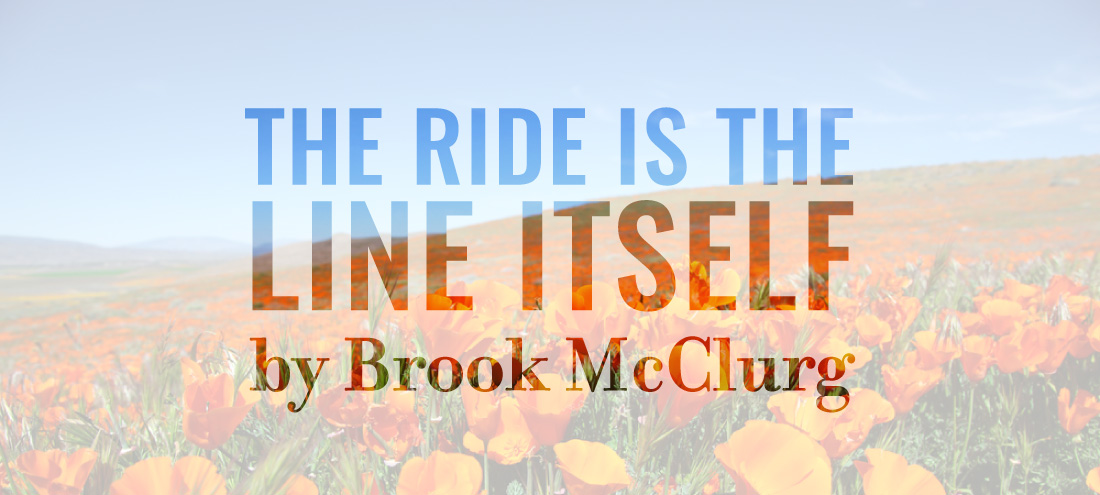1st Place – Flash 405, June 2019: “Legacy”
Nonfiction

Spring meant nothing in drought-stricken Southern California. Seasons passed unnoticed. Look left, right. Wait for the tourists to change. We ran kissing each other, them, hanging out of Jeeps and low-riders, flying the riverbed past curfew. The electricity of skin-on-sunburned-skin begging for eucalyptus relief and a fingertip’s graze; tussled hair and chapped lips soothed by the moisture of strangers. Every relationship lasted the theme park length of a line.
Easter sweltered, the chocolate eggs and jellybeans melting into the lawn before they could be collected. April showers came brief if at all. June gloom burned off by noon but only locals knew started in May. The spirit-dampening marine layer was but a half-day sentence; the beach still, just later.
I left. Several times and each time for longer, I left, until my own transience became constant. A circus coming through town: tent up, tent down.
I returned this el Niño year to a Superbloom even Death Valley couldn’t avoid. Life sprouted in verdant greens, goldenrods and fuchsias: the slender phlox and desert parsley of the Antelope valley, chia on the Carrizo plain and a pink chaparral currant pouring through Placerita. On a map the spots are an outbreak that resemble a backslash that mimics California’s Cartesian tilt: Left to right, and downward, a floral fault line dividing coast and desert.
Angelinos and tourists alike are careless and heavy-footed, trampling the foliage for a #poppies picture above what is—most seasons—the ugliest lake in the state. Park rangers bemoan the off-path liberties taken. People pretend not to hear. Someone lands a helicopter in the valley because traffic. Why must we love things to death?
Homogenization is a process of reduction. Through pressure, one thing is made small enough so as not to be noticed in the other. This is how I feel on streets once familiar: Encroached upon. Invisible. Unkissable. From a beach overlooking newly strip-malled PCH, I avoid eye contact, hide from exes as surely as they would me. I determine not to turn if I hear my name, but nobody calls it.
Judge’s Comments:
With impressionistic scenes of a remembered Southern California, this piece interrogated my notions of an immutable, monolithic legacy. Through masterful syntax and innovative, word-stringing diction, our author meditates on what it means to find a home so different than how we left it. In reading, I began to wonder the ways in which a place’s impact can be dynamic, and how alienating and foreign homecoming has become in a rapidly changing world. “This is how I feel on streets once familiar; Encroached upon. Invisible,” is what our author finds, is the dislocation that awaits them as the past they know slips away into superficial commodity.
Brook McClurg received his B.A. in Creative Writing from Columbia University (fiction) and an MFA from Rutgers University-Camden (nonfiction). Originally from Southern California, he currently lives in Lubbock, Texas where he is a second-year PhD student in the graduate English Department at Texas Tech.